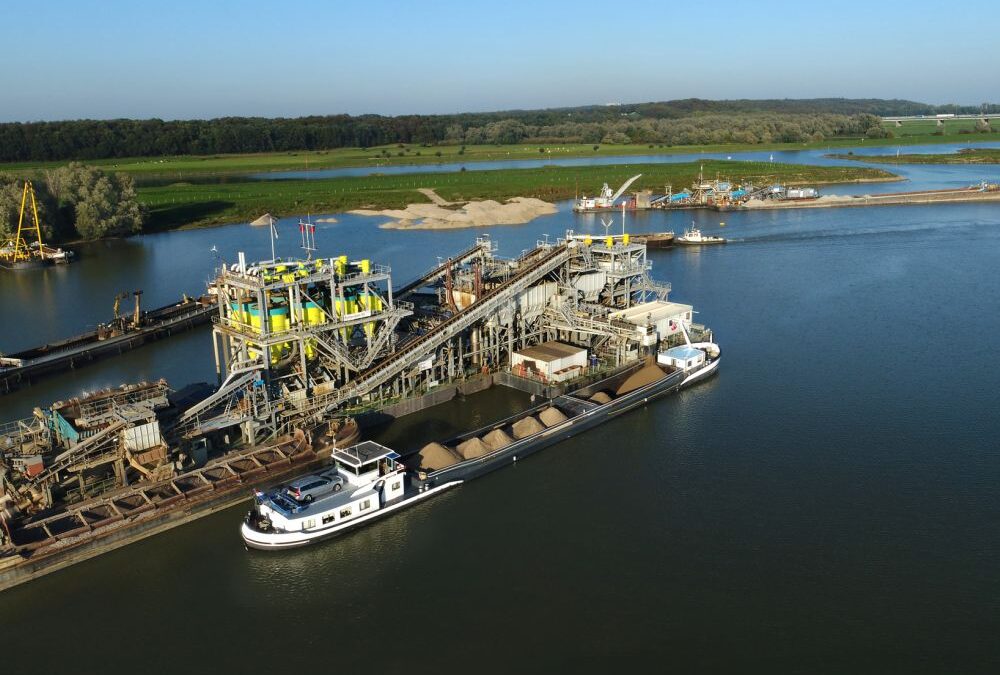Bakker Sliedrecht has provided one of Europe’s largest floating sand plants of Dekker Group with a sustainable shore power connection. The system integrator has carried out the delivery and installation of the high-voltage facilities at the sand plant in cooperation with Dekker Grondstoffen and Verhoef EMC.
By connecting to shore power, the immense production plant can now run on sustainable electricity. This can save over 3 million liters of diesel per year and reduces CO2 emissions by eighty per cent per tonne of sand and gravel that is being extracted.
The sailing sand production plant consists of a suction dredger that sucks up the sand, the Rotterdam 58, and a floating sand classification installation, the Rotterdam 55, that sorts the sand and soil and prepares it for supply to the concrete and asphalt industry. The ship has already been electrified earlier with the help of Bakker Sliedrecht.
Also read: Bakker Sliedrecht readies Heerema’s crane vessels for shore power
High-voltage cables
Bakker Sliedrecht installed the high-voltage cables connecting the installation with the onshore grid operator’s power station. On board, Bakker Sliedrecht was responsible for the delivery and commissioning of the 24-kv high-voltage installation, the transformers that convert 10 kv to 420 volts and all high-voltage cables. The transformer on board, as well as the high voltage cables, are prepared for the increase of the grid voltage from 10 kv to 20 kv. This will increase capacity on the congested high-voltage grid.
Previously, Bakker Sliedrecht electrified the crane vessels Thialf and Sleipnir of Heerema Marine Contractors, allowing them to operate on sustainable shore power when they are moored at the quay of the Caland Canal in Rotterdam. This significantly reduces noise and emissions of CO2, nitrogen, sulfur dioxide and particulate matter.
Also read: Bakker Sliedrecht and RH Marine fit module carrier BigRoll Bering with DP2








